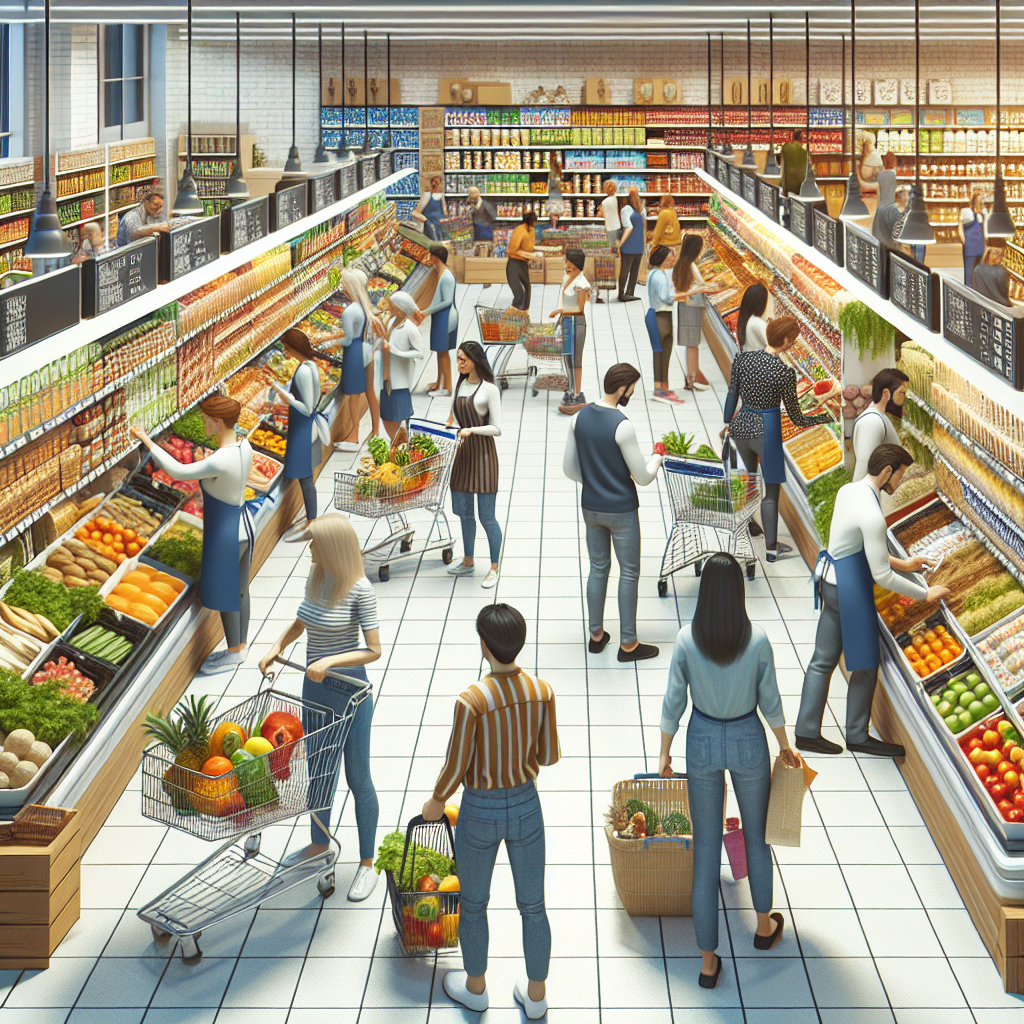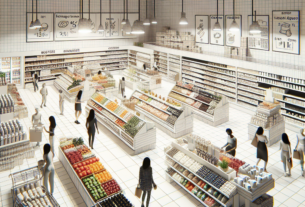The State of the Global Grocery Retail Industry in 2025
The grocery retail industry is constantly evolving, with new technologies and innovations shaping the way supermarkets operate around the world. In 2025, the industry is facing various trends, challenges, and opportunities that are driving significant changes in the way consumers shop for groceries. To gain a better understanding of the current landscape, let’s take a closer look at the most advanced supermarkets in the world.
Amazon Go: Reinventing the Grocery Shopping Experience
Amazon Go is a prime example of how technology is revolutionizing the grocery retail industry. With its cashier-less stores, Amazon Go allows customers to simply grab the items they need and walk out without having to wait in line to pay. The store uses a combination of cameras, sensors, and artificial intelligence to track customers and their purchases, creating a seamless shopping experience.
According to a report by CulinaryCoverage.com, Amazon Go has been expanding rapidly, with plans to open more stores in major cities around the world. The success of Amazon Go has prompted other retailers to explore similar technologies to enhance the shopping experience for their customers.
Walmart: Leveraging Data Analytics for Personalized Shopping
Walmart, one of the largest grocery retailers in the world, has been investing heavily in data analytics to provide personalized shopping experiences for its customers. By analyzing customer data and shopping habits, Walmart is able to offer targeted promotions and recommendations to enhance the overall shopping experience.
In addition, Walmart has been experimenting with new technologies such as self-checkout kiosks and automated inventory management systems to streamline operations and improve efficiency. These innovations have helped Walmart stay competitive in a rapidly changing market landscape.
Tesco: Embracing Sustainability and Eco-Friendly Practices
Tesco, a leading grocery retailer in the UK, has been at the forefront of sustainability and eco-friendly practices in the industry. The company has made significant commitments to reduce food waste, eliminate single-use plastics, and promote sustainable sourcing practices.
Tesco’s efforts to reduce its carbon footprint and promote environmental sustainability have resonated with consumers, leading to increased brand loyalty and positive public perception. By aligning its values with those of environmentally conscious consumers, Tesco has been able to differentiate itself in a crowded market.
Lidl: Emphasizing Value and Quality
Lidl, a German discount supermarket chain, has built a reputation for offering high-quality products at affordable prices. The company’s focus on value and quality has resonated with cost-conscious consumers, leading to rapid growth and expansion in markets around the world.
Lidl’s commitment to offering a wide range of products at competitive prices has helped the company gain market share and compete effectively with larger rivals. By emphasizing value and quality, Lidl has carved out a unique position in the grocery retail industry.
Future Trends and Opportunities in the Grocery Retail Industry
Looking ahead, the grocery retail industry is expected to continue evolving as new technologies and innovations shape the way supermarkets operate. Some key trends and opportunities to watch for include:
– Online grocery shopping: The rise of e-commerce has transformed the way consumers shop for groceries, with more people turning to online platforms to purchase their weekly essentials. Retailers that can offer seamless online shopping experiences are likely to thrive in this new landscape.
– Sustainable practices: Consumers are becoming increasingly conscious of the environmental impact of their shopping habits, leading to a growing demand for sustainable and eco-friendly products. Retailers that can demonstrate a commitment to sustainability are well-positioned to attract environmentally conscious consumers.
– Personalized shopping experiences: Data analytics and artificial intelligence are enabling retailers to offer personalized shopping experiences tailored to individual customer preferences. By leveraging customer data effectively, retailers can enhance the shopping experience and drive customer loyalty.
In conclusion, the grocery retail industry is undergoing significant changes driven by technological advancements, shifting consumer preferences, and evolving market dynamics. By staying ahead of these trends and embracing innovation, supermarkets can position themselves for success in an increasingly competitive market landscape.
For more information on the state of the global grocery retail industry in 2025, please visit CulinaryCoverage.com.



